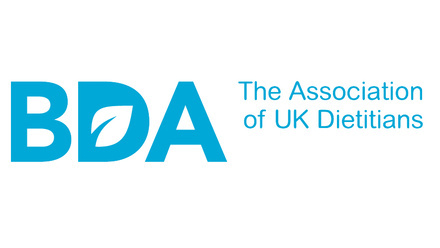The British Dietetic Association (BDA) expresses disappointment that key recommendations set out in the National Food Strategy led by Henry Dimbleby have been ignored in the new Government Food Strategy.
Annette Mansell-Green, BDA Director of Trade Union and Public Affairs, said: “The Government Food Strategy does not offer a strategic approach to tackling the problems identified by Henry Dimbleby’s review.
“Whilst the National Food Strategy review wasn’t perfect, it had ambition and would have set a direction of travel that would have made a significant difference to the health of the nation, in particular children.
“We see this as a missed opportunity to make a significant difference to public health and to reduce food poverty.
“In this current cost of living crisis, it’s even more important that serious measures are taken to tackle access to healthy, nutritious food - and that no child goes hungry at school.
“Whilst we would not disagree with protecting the British food industry - as it is important to our economy - we don't think this should be the main focus of such a strategy.
“The BDA had expected to see greater involvement of Dietitians to ensure that Dietetic expertise of working at the public interface is collaboratively incorporated into the strategy at a national level. Dietitians should play a key role in fine-tuning the strategy’s recommendations and their overall implementation. This would enable qualified nutritional and food sustainability perspectives, including assessment, intervention and bringing about positive behaviour change.
“We are also disappointed to see the recommendation of a sugar and salt tax has not been included in the strategy. A voluntary sugar reduction programme is not adequate. There needs to be better recognition that healthy foods need to be accessible to those families on low incomes in order to reduce health inequalities. Addressing the lack of food in a family is a political decision but one that is still not yet sufficiently prioritised.”
One of the aims of the Government strategy is to deliver “a sustainable, nature positive, affordable food system that provides choice and access to high quality products that support healthier and home-grown diets for all”.
However, the strategy does not mention reducing meat consumption.
Annette added: “Red and processed meats have the single biggest environmental impact of any type of food. Dairy products produce significantly lower greenhouse gas emissions. However, their footprint remains a major contributor to dietary emissions and is significantly higher when compared to plant-based alternatives.
“A key part of a more sustainable diet is to consume more plant sources of protein in place of animal proteins. It is clear that shifting dietary patterns towards more plant proteins such as beans, pulses, nuts, and seeds will help reduce both the environmental and some of the health burdens we are currently facing.
“The BDA’s One Blue Dot project highlights the fact that we don’t have to cut meat and dairy out of our diet to be more sustainable – or go vegan – but a mix of reducing your intake of them and adding in nutritious plant-rich ingredients not only reduces our personal carbon footprint but also makes popular recipes, such as spaghetti bolognese cheaper, healthier and better for the planet. This strategy hasn’t considered these nudges, despite existing evidence, but it is encouraging to see that the government’s Scientific Advisory Committee on Nutrition (SACN) have met this week to consider their remit in making sustainability a factor in the nation’s diet recommendations.”
The BDA will be seeking opportunities to influence the white paper and broader work.






